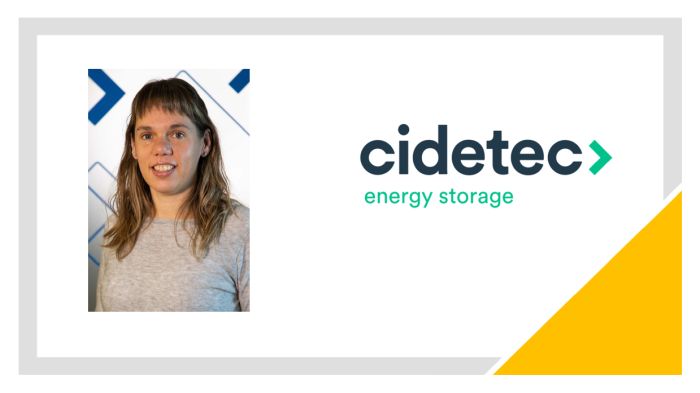Olatz Leonet has been a researcher at Cidetec Energy Storage since 2005 and is currently responsible for the electrical battery testing laboratory. She joined CIDETEC in 2005, where she has developed her career within the new technologies group, working with different battery chemistries such as Li-ion, Li-S, and Na-ion. Her work has included electrode manufacturing, from slurry preparation and coating to their electrochemical characterization.
Currently, her activities focus on the planning, execution, and analysis of battery tests in accordance with international standards, as well as on the development of advanced testing methodologies for new generations of energy storage technologies such as advanced Li-ion or NA-ion electrochemical energy storage systems. She has participated in numerous European and national projects, contributing both to technical tasks and the management of work packages. In addition, she has contributed to several scientific and technical publications related to battery performance.
What was your original motivation to pursue a career in innovation, e.g., become a researcher/project manager?
Since the beginning of my academic journey, I’ve always been curious about how things work and how they can be improved. Working as a researcher gave me the chance to stay close to new technologies, keep learning constantly, and collaborate with people from different backgrounds. As I gradually took on more responsibilities, I found that project management came as a natural step, it allowed me to take a more active role in shaping ideas, following them through to real applications.
What is your (main) research area today?
The main research area is planning, execution, and analysis of battery tests for new generations of energy storage technologies such as advanced Li-ion or Na-ion electrochemical energy storage systems as Na-ion technology.
What is the main focus of you and your team in Episode?
Our goal in the project Episode is to fabricate and validate cathodic electrodes, using different active materials generations, at electrode level as well as understand the scalability of the cathode up to cell level.
From all your activities within the project, what are you the most proud of/keen of to share with the public?
Cidetec Energy Storage’s electrode manufacturing facilities enable the fabrication of electrodes ranging from small-scale prototypes to full battery cells, ensuring that the cathode electrode manufacturing process can be reliably scaled and transferred to industrial production environments. In this regard, the main key activity that we are planning to do in the Episode project is to manufacture the cathodic electrode inside the dry room with a dew point of -50ºC. Producing sodium-ion battery cathodes in a dry room with a –50 °C dew point brings key advantages. The ultra-dry air protects sensitive materials from moisture damage, ensuring stable and consistent quality. It reduces defects during electrode manufacturing, leading to more reliable and longer-lasting batteries. Safety is also improved by preventing the formation of harmful byproducts. Cidetec Energy Storage´s electrode manufacturing facilities lead to manufacture electrodes starting from small battery protypes to real battery cell ensuring that the scaling up process of the cathodic electrode manufacturing process is applicable in real factories.
How do you expect the Episode results will impact your organisation and the battery sector in Europe?
Cidetec Energy Storage’s active involvement in the EPISODE project positions the centre to deliver significant advancements in sodium-ion battery technology. This participation will reinforce our capabilities in electrode manufacturing, ensuring robust and scalable processes, while simultaneously increasing European visibility and recognition in the field of sodium-ion battery development.

